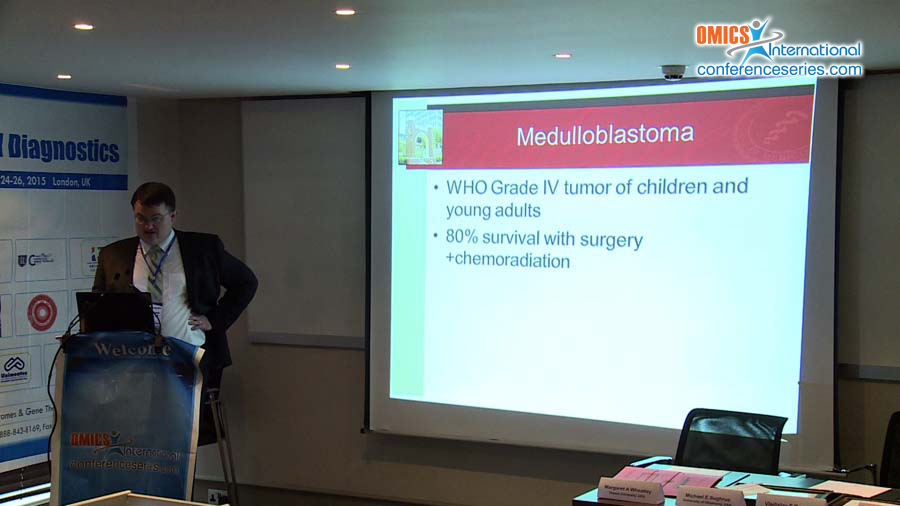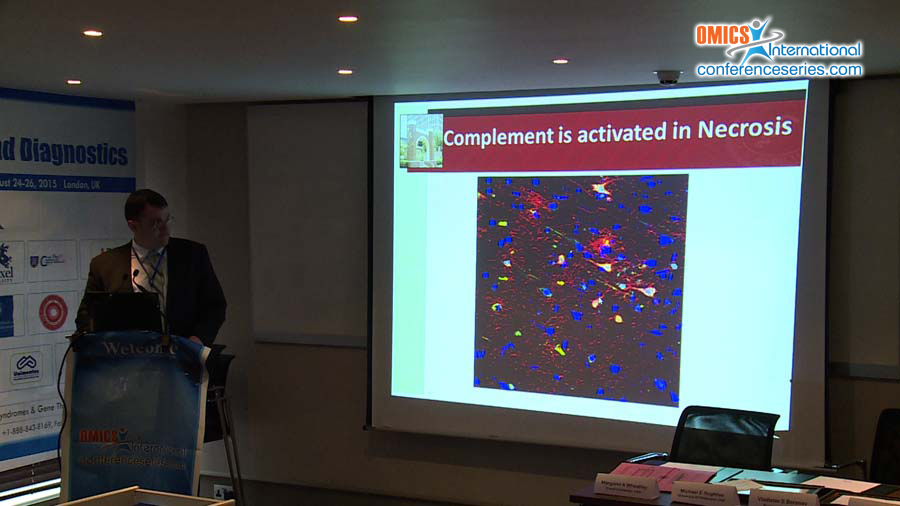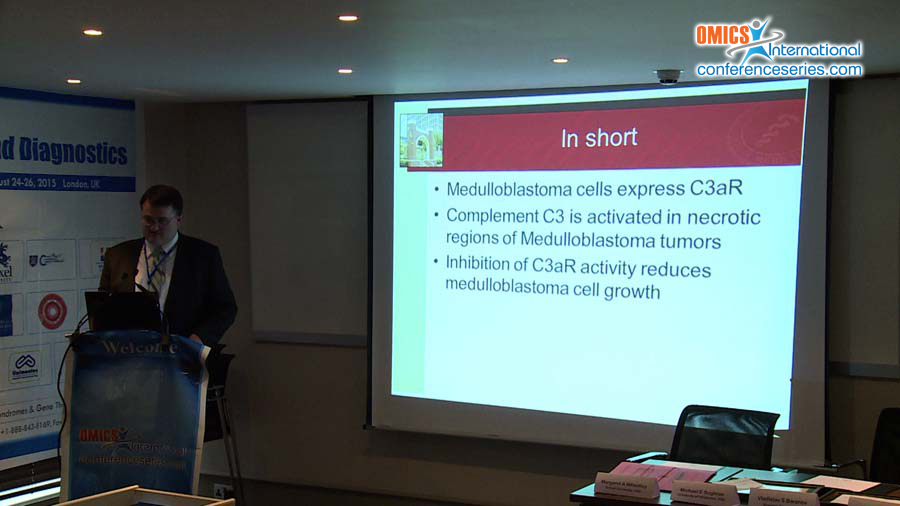
Michael E Sughrue
University of Oklahoma, USA
Title: Tumor necrosis-initiated complement activation stimulates proliferation of medulloblastoma cells
Biography
Biography: Michael E Sughrue
Abstract
Objective:While the ascribed role of complement has generally been limited to inflammation and the immune response to pathogens, recent data suggest that the system has far broader functions, including that of a proliferation signal. We sought to determine the effect of necrosis-induced activation of the complement protein C3 in medulloblastoma.
Materials/Methods:Twelve medulloblastoma surgical specimens were evaluated for complement activation using immunohistochemistry, with H&E stains performed on adjacent tissue sections to determine the relationship of complement activation to necrotic tissue. Flow cytometry and Western blot were performed on 3 established medulloblastoma lines and 1 surgically procured cell culture to determine expression of C3a receptor (C3aR) in medulloblastoma. In vitro proliferation of siRNA C3aR knockdown cells was compared to that of control siRNA cells with cell line Daoy.
Results:Three surgical specimens were found to have necrosis on H&E sections. In each case, iC3b staining was identified on adjacent sections, limited to the necrotic region. In no case did necrosis occur without iC3b staining on adjacent sections. C3aR protein was demonstrated on both the 3 established cell lines and on the surgical culture. Proliferation assays of Daoy cells with siRNA knockdown vs. control siRNA revealed significantly reduced proliferation at 72 hours (p = 0.001).
Conclusions: Necrosis is associated with complement activation in medulloblastoma. Medulloblastoma cells express C3aR, and siRNA-mediated knockdown of C3aR inhibits proliferation of these cells in vitro.



